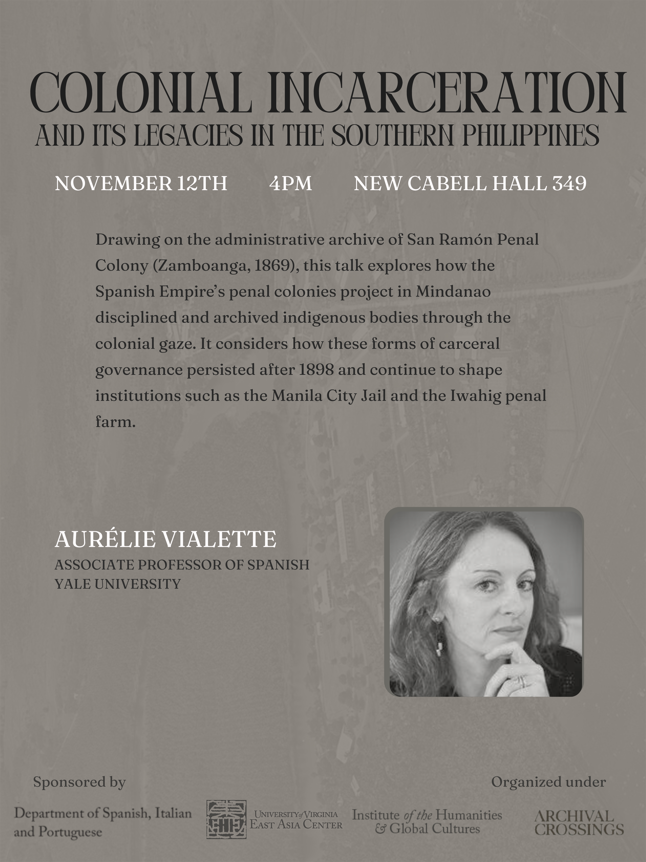
COLONIAL INCARCERATION AND ITS LEGACIES IN THE SOUTHERN PHILIPPINES
AURÉLIE VIALETTE - Yale University
Wednesday, November 12
4:00 PM
New Cabell Hall 349
Lecture
This talk focuses on the Spanish empire’s penal colonies project in Mindanao, the Philippines. It analyzes the administrative archive of the San Ramón penal colony in Zamboanga (from the National Archives of the Philippines), established as an experiment in 1869 with indigenous incarcerated individuals. It addresses some of the mechanisms through which incarcerated bodies are scrutinized, capacitated and incapacitated, discriminated against, and finally archived through the colonial gaze. Ultimately, the legacies of the penal colonization of the Philippines by the Spanish empire led to the reproduction of other penal colonies: the U.S. colonization, which commenced in 1898, entailed the implementation of governmental techniques previously employed by Spain. The talk also shares interviews conducted at the Manila City Jail and the Iwahig penal farm in Puerto Princesa (Palawan Island) to show the legacies of colonial incarceration today.
About the Speaker
Aurélie Vialette is Associate Professor of Spanish and Portuguese at Yale University and Director of Undergraduate Studies for Spanish. A scholar of archive theory and modern Iberian studies, her work explores the intersections of labor, gender, and incarceration in the Spanish Empire. She is the author of Intellectual Philanthropy: The Seduction of the Masses (Purdue University Press, 2018) and co-editor of Cultural Legacies of Slavery in Modern Spain (SUNY Press, 2025). Her current book project, The Penal Archive of the Iberian Pacific: Prison and Disability in the 19th-Century Philippines (Cornell University Press), examines the racial, ethical, political, and social issues involved in the penal colonization process in the Philippines.
Sponsored by the Department of Spanish, Italian, and Portuguese; the Institute of the Humanities and Global Cultures; and the East Asia Center. Organized under Archival Crossings.
For more information or to request accessibility accommodations, contact: Robert Sanchis-Álvarez at robert.sanchis@virginia.edu